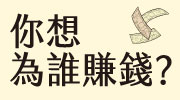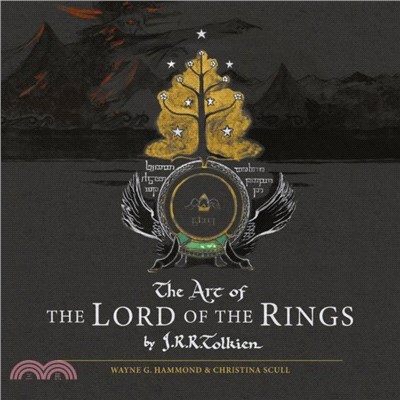Adagio Ma Non Troppo
商品資訊
ISBN13:9781934254707
出版社:Les Figues Pr
作者:Ryoko Sekiguchi; Lindsay Turner (TRN)
出版日:2018/09/01
裝訂/頁數:平裝/110頁
定價
:NT$ 850 元無庫存,下單後進貨(到貨天數約30-45天)
下單可得紅利積點:25 點
商品簡介
相關商品
商品簡介
Poetry. Asian & Asian American Studies. Translated by Lindsay Turner. Introduction by Sawako Nakayasu. Ryoko Sekiguchi takes the letters Fernando Pessoa wrote his would-be fiancée Ophelia Queiroz as her subject matter in ADAGIO MA NON TROPPO. ADAGIO's 36 prose blocks--appearing in Japanese, French, and English for the first time in the 2018 Les Figues Press trilingual edition (trans. Lindsay Turner)--echo the 36 letters Pessoa addressed to Queiroz dated from March 1, 1920, until January 11, 1930.
Sekiguchi reconceives the Lisbon Pessoa and Queiroz describe in their correspondence as a map over which rendezvous, affairs, and liaisons can be continued through writing. "Written words," she asks, "do they erase themselves? [...] or instead do all words, once read, never disappear?" Sekiguchi superimposes objects over a landscape where names carry shapes, directions, and the places to which they refer. In her Lisbon, a chair slid into daylight or set before a window punctuates time like comma in a sentence. An old couple contemplating ducks indicates a line between two points like a parasol taken from its stand announces a departure. As love establishes boundaries and relationships between people, if our objects convey our love for one another, then Sekiguchi traces the paths and perimeters lovers leave behind.
Originally published in a bilingual edition containing Sekiguchi's self-translation into the French (Le bleu du ciel éditions, 2007), ADAGIO MA NON TROPPO belongs in the same category as the modernist works of Franz Kafka and Pessoa--as well as the recent epistolary work of Marguerite Duras, Roland Barthes, Karl Ove Knausgaard, Maggie Nelson, and Claire-Louise Bennett--writing as a philosophic and aesthetic act that reshapes our notions of time, space, translation, and love.
"What a delicate pleasure, meeting with Ryoko Sekiguchi's ADAGIO MA NON TROPPO, planning such a meeting, being delayed, being fulfilled, moving through one's streets with this book in hand. This is such a work of commune. It is a machiawase and rendezvous and an appointment, lush but careful, anticipatory but reflective. It isn't simply an encounter between reader and author, but so, too, in that meeting place, is Fernando Pessoa and Ophelia Queiroz, Sawako Nakayasu (whose welcoming introduction induces our readerly pathways) and Lindsay Turner (whose vibrantly attuned translation underscores another set of correspondents, its three languages Japanese, French, and English). Through these instructions, volitions, and fleeting glimpses--the various kinds of light falling on interior and exterior places one and the same--we are reminded what it is to seek, as an everyday task, the beloved."--Ryo Yamaguchi
Sekiguchi reconceives the Lisbon Pessoa and Queiroz describe in their correspondence as a map over which rendezvous, affairs, and liaisons can be continued through writing. "Written words," she asks, "do they erase themselves? [...] or instead do all words, once read, never disappear?" Sekiguchi superimposes objects over a landscape where names carry shapes, directions, and the places to which they refer. In her Lisbon, a chair slid into daylight or set before a window punctuates time like comma in a sentence. An old couple contemplating ducks indicates a line between two points like a parasol taken from its stand announces a departure. As love establishes boundaries and relationships between people, if our objects convey our love for one another, then Sekiguchi traces the paths and perimeters lovers leave behind.
Originally published in a bilingual edition containing Sekiguchi's self-translation into the French (Le bleu du ciel éditions, 2007), ADAGIO MA NON TROPPO belongs in the same category as the modernist works of Franz Kafka and Pessoa--as well as the recent epistolary work of Marguerite Duras, Roland Barthes, Karl Ove Knausgaard, Maggie Nelson, and Claire-Louise Bennett--writing as a philosophic and aesthetic act that reshapes our notions of time, space, translation, and love.
"What a delicate pleasure, meeting with Ryoko Sekiguchi's ADAGIO MA NON TROPPO, planning such a meeting, being delayed, being fulfilled, moving through one's streets with this book in hand. This is such a work of commune. It is a machiawase and rendezvous and an appointment, lush but careful, anticipatory but reflective. It isn't simply an encounter between reader and author, but so, too, in that meeting place, is Fernando Pessoa and Ophelia Queiroz, Sawako Nakayasu (whose welcoming introduction induces our readerly pathways) and Lindsay Turner (whose vibrantly attuned translation underscores another set of correspondents, its three languages Japanese, French, and English). Through these instructions, volitions, and fleeting glimpses--the various kinds of light falling on interior and exterior places one and the same--we are reminded what it is to seek, as an everyday task, the beloved."--Ryo Yamaguchi
主題書展
更多
主題書展
更多書展今日66折
您曾經瀏覽過的商品
購物須知
外文書商品之書封,為出版社提供之樣本。實際出貨商品,以出版社所提供之現有版本為主。部份書籍,因出版社供應狀況特殊,匯率將依實際狀況做調整。
無庫存之商品,在您完成訂單程序之後,將以空運的方式為你下單調貨。為了縮短等待的時間,建議您將外文書與其他商品分開下單,以獲得最快的取貨速度,平均調貨時間為1~2個月。
為了保護您的權益,「三民網路書店」提供會員七日商品鑑賞期(收到商品為起始日)。
若要辦理退貨,請在商品鑑賞期內寄回,且商品必須是全新狀態與完整包裝(商品、附件、發票、隨貨贈品等)否則恕不接受退貨。
























